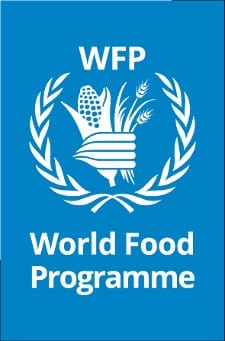Created in 1961, WFP launched its first programme in 1963 in Sudan. Since then, WFP has expanded its presence to over 120 countries and territories to carry out is mission. We bring life-saving food to people displaced by conflict and made destitute by disasters, and help individuals and communities find life-changing solutions to the multiple challenges they face in building better futures.
We work to enhance nutrition in women and children, support smallholder farmers in improving productivity and reducing losses, help countries and communities prepare for and cope with climate-related shocks, and boost human capital through school feeding programmes.
In conflict situations, we bring relief to exhausted populations and use food assistance to build pathways to peace and stability – work for which WFP was awarded the Nobel Peace Prize in 2020.
The WFP Office to the European Union, established in 1996, works in close partnership with the European Union – our third-largest donor – to address the most pressing food crises as well as provide long-term development solutions.
Together with the European Commission’s Directorate-General for Civil Protection and Humanitarian Aid Operations (ECHO), the Directorate-General for International Partnerships (INTPA), the Directorate-General for Neighbourhood and Enlargement Negotiations (NEAR), and the Service for Foreign Policy Instruments (FPI), WFP works to fight hunger, save lives, find solutions to food insecurity and poverty, and support vulnerable populations across the globe.
In addition to partnering with the European Commission, WFP also works together with other EU institutions in Brussels, particularly the European Parliament, the Council of the European Union and the European Union External Action Service (EEAS).
WFP’s mission is to save and change lives, with the ultimate goal of achieving a world with zero hunger. Our presence in over 120 countries and territories covers a broad range of activities, which include:
- Preventing and mitigating famine – WFP has the expertise, deep-field presence and operational scale to stop famine in its tracks, and steer people away from the edge of starvation
- Responding in life-saving situations – Every year, WFP to assists millions of people affected by conflict, climate change, and other cataclysmic events. On any given day, WFP has 6,500 trucks, 140 aircraft and 20 ships on the go.
- Providing life-changing solutions – WFP helps communities build resilience to climate extremes and other shocks, strengthens food systems, supports smallholder farmers, invests in school-based programmes, and tackles malnutrition.
- Building pathways to stability and peace – WFP assistance is not just a lifeline for people trapped in conflict or on the run after being forced out of their homes. It can also be the first step towards peace, helping to ease tensions that could escalate into conflict.
- Supporting governments – WFP supports governments in building their capacity to manage disaster risk and improve food security. We also provide technical and operational support to strengthen national social protection systems.
- Investing in innovation and digital transformation – WFP harnesses new technologies to improve response in emergecnceies and the responsible use of data to achieve zero hunger by 2030.

